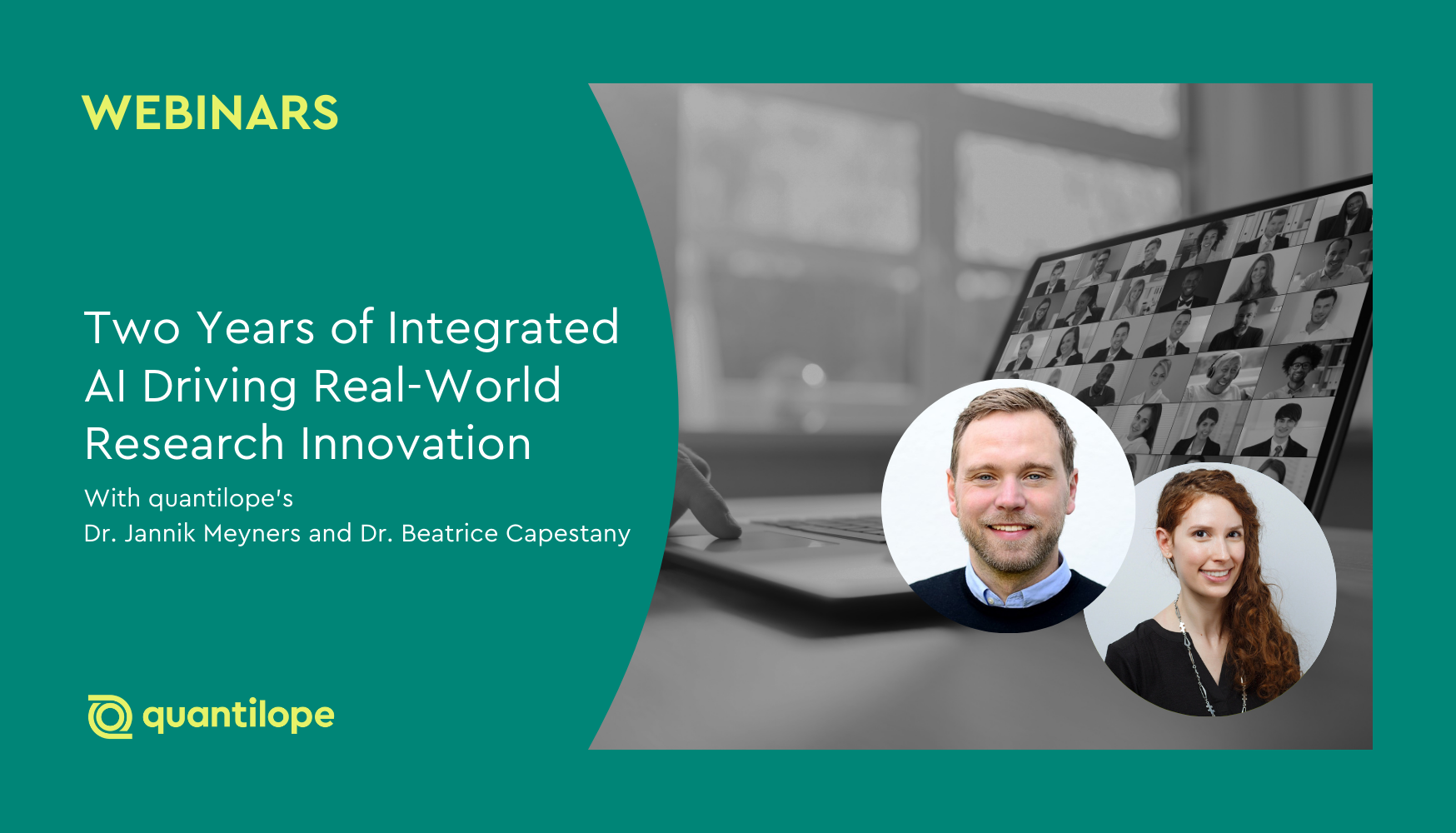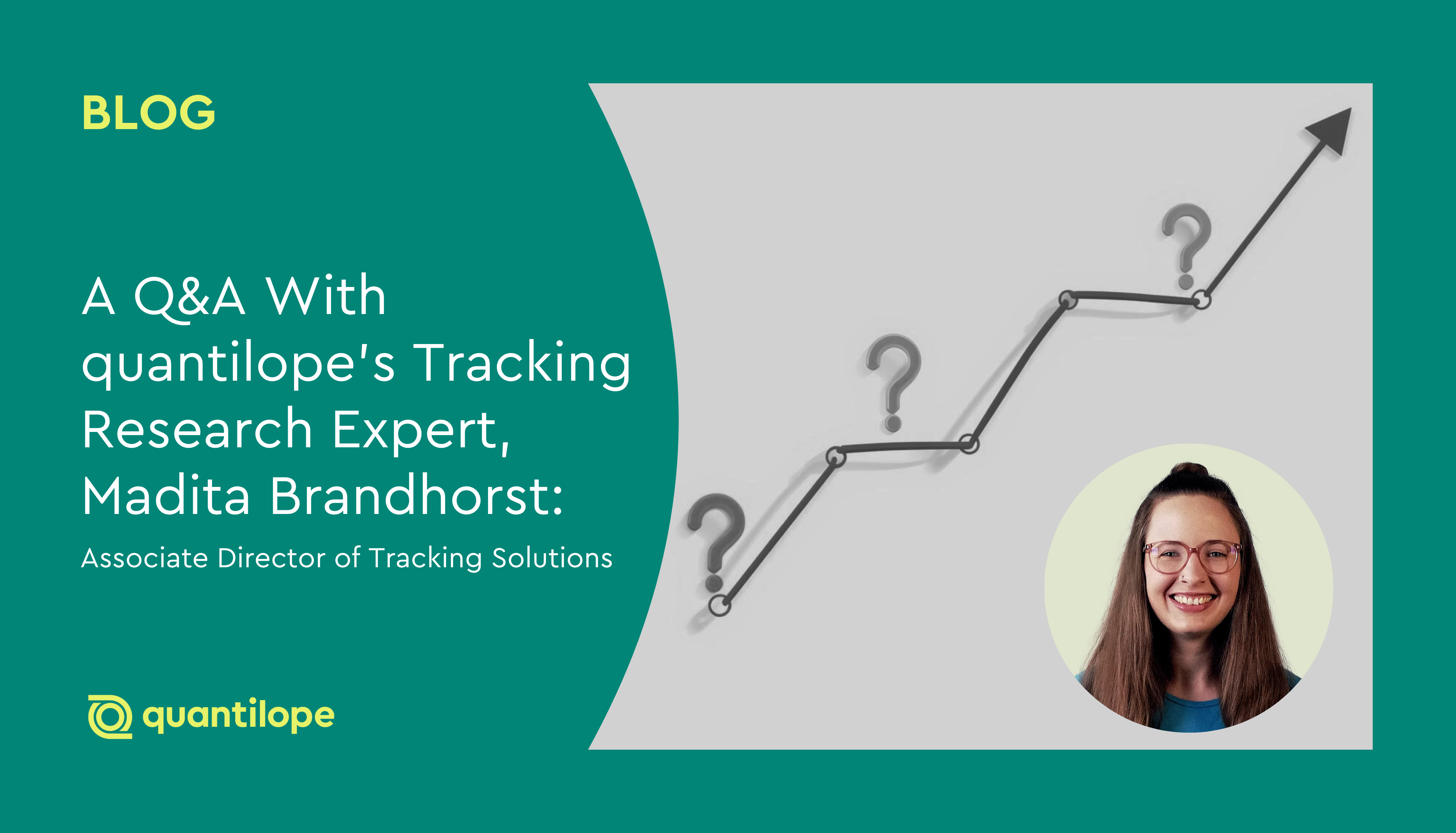The rise of Artificial Intelligence (AI) has sparked widespread speculation about the future of work, and the market research industry is no exception. With AI's ability to process massive datasets and automate tasks, some might wonder: will AI replace market research analysts?
Researchers’ fears of AI are primarily rooted in its unmatched speed and potential for cost savings. It can complete weeks of data cleaning and consumer behavior analysis in mere moments. While AI is undoubtedly a powerful new tool – one that is revolutionizing how we can gather and analyze consumer insights through tools like OpenAI’s ChatGPT or Google's Gemini – it doesn’t fully replace human expertise.
Instead of seeing it as a threat, market researchers can view AI as their personal assistant, empowering them to be more strategic in their day-to-day work. If anything, using AI tools will support researchers in making even more of an impact on their organization, allowing them to focus on actionable takeaways for strategic decision-making instead of mundane, tedious research tasks.
To explore this dynamic between AI and researchers in more detail, below are five crucial reasons why AI won't be taking over market research roles anytime soon.
Table of Contents:
1. AI needs a human driver
Perhaps the most obvious reason why AI won’t fully replace market researchers is because AI tools are only as effective as the prompts human researchers provide them. AI tools don’t just pull information out of thin air. They require detailed prompts, questions, or inputs (sometimes with several rounds of follow ups) to work as intended. With AI, you get out what you put in, and only market researchers have the crucial background information needed to make effective use of it in their market research process (e.g. to summarize, generate, or forecast information).
Back to Table of Contents
2. AI cannot conduct true primary research
One of the most valuable aspects of market research is the creation of new, proprietary data that doesn't yet exist anywhere else. AI models, particularly large language models (LLMs), are trained on historical data. Because AI-generated outputs largely depend on the source of its inputs, if you’re looking for insights into a niche market or new product category, your AI model will likely struggle to generate a credible output, simply because the public data isn’t there.
Think of it the same way as comparing primary data to secondary data in standard market research; primary data will always be more detailed, actionable, and effective at answering your business questions; but to conduct primary research studies, you need market researchers. While AI algorithms can provide valuable support throughout the process, human researchers are really the ones who design and execute new surveys with a variety of research methods, conduct ethnographic studies, and organize in-depth interviews/focus groups.
Back to Table of Contents
3. AI lacks context, nuance, and the "why"
AI-powered tools excel at repetitive tasks and pattern recognition; this is where they have an upper hand over human capabilities thanks to advancements like machine learning. It can sift through vast amounts of data and search queries in real-time, identifying market trends and correlations that a human eye might miss. For example, AI data analysis can quickly identify a rise in social media mentions for a new product and correlate that to an increase in sales. Most AI tools, however, won’t tell you why this is likely happening. Is it because of a viral marketing strategy? A celebrity endorsement? A new cultural trend among a certain demographic that the AI's training data doesn't yet account for? Human researchers have the real-world and business knowledge needed to make these contextual inferences from their data collection. They can translate complex data patterns (from an AI output) into compelling, human-centric narratives that drive business action.
AI also thinks the way it’s trained – through data and routine tasks. That makes it difficult for AI tools to pick up unique human subtleties like sarcasm, body language, or a respondent's hesitation in answering (such as qualitative data’s sentiment analysis). These subtle moments are often where the most valuable insights lie. While AI tools can detect when follow-up questions are needed (like quantilope’s Open-Ended Text Capabilities), there are still times when certain feedback can only be identified human-to-human.
Back to Table of Contents
4. Ethical considerations require a human compass
The use of AI in research raises complex ethical questions about data privacy, consent, and transparency compared to traditional market research. Navigating these challenges requires a human oversight, not just an algorithm. Human researchers are bound by professional ethics and legal regulations (like GDPR and CCPA) to handle sensitive consumer data responsibly. While AI can process this data in some cases, only a researcher can ensure it’s used ethically, with proper consent and security measures in place (an aspect that will likely always limit the full scope of AI in research).
As another consideration, there’s bound to be a project mistake from time to time. When a market research project experiences a misstep, someone needs to be held accountable to learn from the mistake and avoid it happening again in the future; AI tools, however, can’t be held to those same expectations and standards. No client is going to accept hearing that ‘the AI tool is to blame for the mistake’. Maintaining trust with clients, consumers, and stakeholders requires a clear, human-led framework for the ethical use of data.
Back to Table of Contents
5. AI is still a new and unfamiliar concept
The same way seasoned market researchers are hesitant to adopt new approaches and stray from their traditional means of insights, even more are wary of the accuracy and trust in AI systems. AI, as its name implies, is artificial; it’s an incredible way to streamline daily, mundane tasks, but it’s not yet at a place where we can fully rely on it as the single source of truth. Brands want validation that the decisions they’re making based on their market research data is sound; they trust market researchers to review their study metrics and make these types of strategic recommendations.
Think of it like a brand leaving their strategic business decisions solely to a new hire rather than a team that’s been with the business for decades. The new hire might support these decisions and offer great input, but relies on the help and experience of a broader team. The reality is, AI is still a ‘new hire’ for many.
Back to Table of Contents
The future of market research
The future of market research is not about humans versus machines; it’s about a powerful partnership between the two to optimize research workflows for deeper insights. AI will increasingly automate repetitive, data-heavy tasks, freeing up human market researchers to focus on strategic, creative, and ethical work. It will allow professionals to spend more time critically thinking about the activation of their insights and stay ahead of the competition with the help of AI’s predictive analytics.
It’s an exciting time to be in the field of market research during the AI boom! Researchers should consider the impact of AI as an opportunity to get more done, rather than as a threat to their current jobs.
To learn more about how quantilope users can leverage AI throughout their end-to-end insights process, get in touch below!




